People
e-HAIL is a growing and engaged group of researchers. If you have questions or would like to join, contact jflorusb@umich.edu.
e-HAIL Leadership

J. Henrike Florusbosch, Ph.D.
e-HAIL Program Manager
Michigan Medicine/College of Engineering

Rada Mihalcea, Ph.D.
Janice M. Jenkins Collegiate Professor of Computer Science and Engineering
Professor of Electrical Engineering and Computer Science
College of Engineering

Brahmajee Nallamothu M.D.
Stove Julius Research Professor of Cardiovascular Medicine
Professor of Internal Medicine – Cardiology
Michigan Medicine

Akbar Waljee, M.D., M.Sc.
Associate Professor of Internal Medicine – Gastroenterology
Michigan Medicine

Jenna Wiens, Ph.D.
Associate Professor, Electrical Engineering and Computer Science
College of Engineering

Ji Zhu, Ph.D.
Professor of Statistics
College of Literature, Science, & the Arts
e-HAIL Researchers

Andrew Admon, M.D., M.P.H., M.S.
Assistant Professor, Internal Medicine
Areas of Expertise: Critical care epidemiology; health services research; causal inference; observational research methods; clinical data.
Publications:
Beyond Cofounding: Identifying Selection Bias in Observational Pulmonary and Critical Care Research
“I look forward to engaging in research that uses real-world data to improve the care of hospitalized patients. As a practicing ICU physician, health services researcher, and critical care epidemiologist, I’m eager to partner with colleagues on challenging problems that maximally leverage real-world data and cutting edge methods.”

Nazanin Andalibi, Ph.D.
Assistant Professor, School of Information
Areas of Expertise: Human-centered approaches to AI; societal implications of AI; emotion AI.
The Human in Emotion Recognition on Social Media: Attitudes, Outcomes, Risks
“I would like to get to know others who work at the intersection of health and AI and explore collaboration opportunities. I would like to learn more about e-HAIL and how the meetings go before committing to attending 50% of them. Should it become clear that this is a good fit, I would of course participate in an active role. I just cannot anticipate that not having been engaged with this group previously. I appreciate the opportunity to participate and see if this can be mutually enriching.”
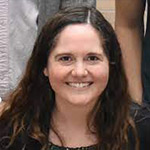
Laura Balzano, Ph.D.
Assistant Professor, Electrical Engineering and Computer Science
Areas of Expertise: Machine learning; modeling with messy data (highly relevant to ML for health); low-dimensional modeling (providing more interpretability for ML for health).
Publications:
Incremental gradient on the Grassmannian for online foreground and background separation in subsampled video
Tensor Methods for Nonlinear Matrix Completion
HePPCAT: Probablistic PCA for Data With Heteroscedastic Noise
“I hope to identify problems that currently use low-rank / PCA / tensor models as a heuristic, or heuristic methods for imputation, outlier detection, or handling heterogeneity, and try to work out statistical models for what a principled approach would look like, in order to build a deeper understanding of what methodologies should be applied in that context.”

Nikola Banovic, Ph.D.
Assistant Professor, Computer Science and Engineering
Areas of Expertise: Human-AI Interaction; explainable and interpretable AI.
“My research focuses on creating computational technology that enables delivery of personalized healthcare interventions and prevention strategies to people with chronic conditions in a way that increases healthcare access and equity.”

Jasmine Berry, Ph.D.
Computing Innovation Postdoctoral Fellow in AI, Computer Science & Engineering
Areas of Expertise: Precision health and wellness; digital health platforms with IOT services; machine learning and data science analysis for protected health information (PHI).
Publications:
An Analytical Approach to Posture-Dependent Muscle Force and Muscle Activation Patterns
“I would like to join the e-HAIL community to become better acquainted with ongoing projects and ventures at UM. I plan to collaborate with other Ph.D. and M.D. scholars with similar interests in the diagnostic analysis of PHI data. If there is interest among the e-HAIL community members, I can 1) assist in researching multidisciplinary approaches for feasible AI implementation in Health, 2) contribute towards prototyping novel ideas and concepts from research to create functional demos and products, and 3) facilitate aligned collaborations between tech sectors in academia, industry, and business.“

Rupa Bhowmick, Ph.D.
Postdoctoral Fellow, Biomedical Engineering
Areas of Expertise: Computational biologist who aims to design computational software and pipelines that can maneuver treatment regimens for cancer patients and serve patient care at low resource settings. Focus on RE-SEARCHING and RE-UTILIZING the enormous landscape of high-throughput patient data using advanced data-science techniques to reduce the multi-dimensionality of the problems into lower dimensions in order to clarify the underlying mechanism.
Publications:
Exploring the differences in metabolic behavior of astrocyte and glioblastoma: a flux balance analysis approach
“I envision engaging with the e-HAIL community to build a collaborative space where I can interact with the clinicians and fellow data-scientists to identify the global pressing concerns in clinical oncology and solve them as a team.”

Laurie Buis, Ph.D.
Associate Professor, Department of Family Medicine
Areas of Expertise: Anesthesiology; medical billing; NLP; ML operations
“I am happy to help out in whatever capacity is needed, and I look forward to engaging with the regular meetings.”

Michael Burns, M.D., Ph.D.
Assistant Professor, Anesthesiology
Areas of Expertise: Mobile health
Publications:
Association of Anesthesiologist Staffing Ratio With Surgical Patient Morbidity and Mortality
Machine Learning Comes of Age: Local Impact versus National Generalizability
“I am looking to expand my understanding of machine learning and natural language processing methods and applications.”

Sriram Chandrasekaran, Ph.D.
Assistant Professor, Biomedical Engineering
Areas of Expertise: Precision health and drug discovery using machine learning.
“I’m interested in engaging with e-HAIL to utilize cutting edge data science tools for treating infectious diseases.”

Shirley Cohen-Mekelburg, M.D., M.S.
Assistant Professor, Internal Medicine
Areas of Expertise: Network analysis; prediction; chronic illness care.
Publications:
Association of Anti-Tumor Necrosis Factor Therapy With Mortality Among Veterans With Inflammatory Bowel Disease
“My research focuses on chronic disease management and identifying gaps in healthcare delivery for specialty-managed chronic disease populations. I am working towards developing models that facilitate chronic care transitions, support self-management, and improve care quality. I envision collaborating with colleagues in engineering to develop or adapt existing operational frameworks, using prediction methods to facilitate population health management.”

Walter Dempsey, Ph.D.
Assistant Professor, Biostatistics
Areas of Expertise: Experimental design and data analytic methods to inform sequential decision making in mobile health; application of ML to real world mobile and digital health data.
Publications:
Just-in-Time but Not Too Much: Determining Treatment Timing in Mobile Health
iSurvive: An Interpretable, Event-time Prediction Model for mHealth
“I envision collaborating with the e-HAIL community on problems around sequential decision making in e-health areas and leveraging the community’s expertise on AI algorithms as well as running e-health clinical trial to push my research forward.“

Paramveer Dhillon, Ph.D.
Assistant Professor, School of Information
Areas of Expertise: New AI methods for high-dimensional datasets or domains with “small n” –many health applications fit that criteria.
Publications:
Social status and novelty drove the spread of online information during the early stages of COVID-19
Interdependence and the cost of uncoordinated responses to COVID-19
Subject-specific functional parcellation via Prior-Based Eigenanatomy
“I am highly interested in health applications and have ongoing collaborations with collaborators from Michigan Medicine. I intend to actively participate in future eHAIL meetings to get to know about others’ research and to potentially forge collaborations.”

Salar Fattahi, Ph.D.
Assistant Professor, Industrial and Operations Engineering
Areas of Expertise: Graphical Models; machine Learning; optimization
Publications:
Scalable Inference of Sparsley-changing Markov Random Fields with Strong Statistical Guarantees
Graphical Lasso and Thresholding: Equivalence and Closed-form Solutions
“I believe my expertise in computational machine learning and optimization can contribute to the ongoing effort in enhancing the computational tools in computational biology, neuroscience, and biostatistics.”

Jeffrey Fessler, Ph.D.
Professor, Electrical Engineering and Computer Science
Areas of Expertise: Medical image formation.
Publications:
Image Reconstruction: From Sparsity to Data-Adaptive Methods and Machine Learning
“Most of my group members are working ML methods in the context of medicine (medical imaging).”

Daniel Forger, Ph.D.
Browne Professor, Mathematics
Areas of Expertise: Wearables research, including algorithm development to decode wearable data to score sleep and determine the state of the human circadian clock; new types of AI based on physiology.
Publications:
Consumer-grade wearables identify changes in multiple physiological systems during COVID-19 disease progression
A method for characterizing daily physiology from widely used wearables
“I can provide expertise on the AI/ML side particularly as it applies to physiology, and also on the wearables/app side, especially as it relates to algorithms.”

Jessica Golbus, M.D., M.S.
Clinical Instructor, Department of Internal Medicine
Areas of Expertise: Using mHealth technologies to improve the delivery of cardiovascular care; optimizing treatments for patients with advanced systolic heart failure.
“I currently collaborate with multiple e-HAIL members and anticipate sharing our research with the broader community as well as fostering new e-HAIL member collaborations.”
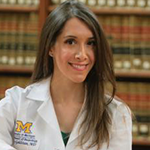
Cathy Goldstein, M.D.
Clinical Associate Professor, Neurology
Areas of Expertise: Sleep; wearables (big data, automation of clinical activities-PSG scoring).
Artificial intelligence in sleep medicine: an American Academy of Sleep Medicine position statement
“I’m interested in engaging with teams to incorporate wearables into research.”

Cornelius James, M.D.
Assistant Professor, Department of Internal Medicine
Areas of Expertise: Medical education: teaching learners across the medical education continuum to use AI/ML in clinical practice.
Publications:
Machine Learning: The Next Paradigm Shift in Medical Education
Preparing Clinicians for a Clinical World Influenced by Artificial Intelligence
“I am looking to develop educational strategies that will increase clinician trust and comfort with the use of AI/ML in their practice. Interprofessional collaborations will be essential to educating clinicians, and engagement with e-HAIL will provide an opportunity to establish these important relationships.”

Raymond Jean, M.D., M.H.S.
Clinical Assistant Professor, Surgery
Areas of Expertise: Trauma; emergency general surgery; critical care; health services research; machine learning
Temporal relationship of computed and structured diagnoses in electronic health record data
“My research focus will involve leveraging clinical data with machine learning to improve perioperative outcomes.”

Anna Kratz, Ph.D.
Associate Professor, Physical Medicine and Rehabilitation
Areas of Expertise: Developing and testing of ehealth programs aimed at symptom management (e.g., management of chronic pain and fatigue) in clinical populations.
Publications:
Development and pilot testing of a web-based symptom management program for multiple sclerosis: My MS toolkit
“I am excited to benefit from and contribute to the efforts of e-HAIL in terms of developing new partnerships between engineering and medicine to accelerate ehealth innovations. My main focus within this broad aim is to develop, use, and test ehealth technologies to both monitor the symptoms and functioning of patients and to deliver interventions aimed at optimizing symptom management and cognitive, physical, and social functioning. I have an active training program in my lab and am actively recruiting postdoctoral fellows with engineering/medicine collaborations in mind. There are many challenges to developing robust collaborations to advance ehealth initiatives and I am committed to contributing to the mission of the eHail Community.”

Andrew Krumm, Ph.D.
Assistant Professor, Department of Learning Health Sciences
Areas of Expertise: Development and use of measurement systems to support health and education organizations; quality improvement.
Publications:
Surgical Trainee Performance and Alignment With Surgical Program Director Expectations
External Validation of a Widely Implemented Proprietary Sepsis Prediction Model in Hospitalized Patients
A Collaborative Approach to Sharing Learner Event Data
“Given my research interests, I hope to support other members’ ongoing projects and engage in collaborative development of future projects.”

Rahul Ladhania, Ph.D.
Assistant Professor, Health Management and Policy
Areas of Expertise: Machine Learning for Causal Inference, with applications in behavior science and healthcare.
Publications:
The Effect of Medicaid Expansion on the Nature of New Enrollees’ Emergency Department Use
Learning and Testing Sub-groups with Heterogeneous Treatment Effects: A Sequence of Two Studies
Megastudies improve the impact of applied behavioural science
A 680,000-person megastudy of nudges to encourage vaccination in pharmacies
“Given the e-HAIL program’s aim of bringing together a community of researchers who work on AI/ML advancements in health, I believe my work and partnerships strongly align with it, and the overall objectives of the program. I’m interested in exploring collaborations with members, actively participate in discussions, and identify areas where I could lead, specifically at the intersection of ML and causality for behavior change.”

Janet Larson, Ph.D., R.N.
Professor, Health Behavior and Biological Sciences
Areas of Expertise: Clinical research with people who have chronic obstructive pulmonary disease (COPD), particularly focused on exercise interventions; development of affordable electronic measure of respiratory rate.
Publications:
Upper-Body Resistance Training and Self-Efficacy Enhancement in COPD
“I would expect to participate in the e-HAIL community building activities including the educational seminars, work-in-progress meetings and the development of competitive research proposals.”

Mariel Lavieri, Ph.D.
Associate Professor, Industrial and Operations Engineering
Areas of Expertise: Medical decision making; stochastic control.
Publications:
Dynamic Forecasting and Control Algorithms of Glaucoma Progression for Clinician Decision Support
Optimal Screening for Hepatocellular Carcinoma: A Restless Bandit Model
Optimal cholesterol treatment plans and genetic testing strategies for cardiovascular diseases
“While I enjoy the creation of new methodology that utilizes health information available to guide sequential decisions over time, I have a key interest in having my research make a difference in the lives of patients and the population. As such, it is crucial for me to work with researchers from different research domains who can ensure that the models my lab creates are not only relevant to the engineering field, but also have the potential of being helpful in practice.”

Jun Li, Ph.D.
Professor, Human Genetics; Computational Medicine and Bioinformatics
Areas of Expertise: Biomedical data science; biostatistics; bioinformatics.
Publications:
Impact of between-tissue differences on pan-cancer predictions of drug sensitivity
Critical limitations of consensus clustering in class discovery
Worldwide human relationships inferred from genome-wide patterns of variation
“I see many opportunities for e-HAIL to interact with the genomics, bioinformatics, and data science communities.“

Zhongming Liu, Ph.D.
Associate Professor, Biomedical Engineering
Areas of Expertise: Medical imaging, primarily magnetic resonance imaging; machine learning algorithms for medical image analysis and precision health; brain-inspired models for artificial intelligence.
Publications:
Representation learning of resting state fMRI with variational autoencoder
Neural Encoding and Decoding with Deep Learning for Dynamic Natural Vision
Explainable Semantic Space by Grounding Language to Vision with Cross-Modal Contrastive Learning
“I am interested in collecting novel medical images with computational imaging methods and contributing advanced analytical tools for computational neuroscience or medical image analysis.”
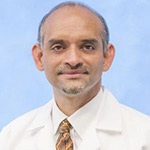
Prashant Mahajan, M.D., M.P.H., M.B.A.
Professor of Emergency Medicine and Pediatrics, Emergency Medicine
Areas of Expertise: Health services research, with focus on data science and ML/AI.
Publications:
Association of RNA Biosignatures With Bacterial Infections in Febrile Infants Aged 60 Days or Younger
“I chair a global emergency research network (www.emergenetwork.org) and I believe collaborating with eHAIL will allow me and the University to expand our impact at a global level.”

Maggie Makar, Ph.D.
Presidential Postdoctoral Fellow, Computer Science and Engineering
Areas of Expertise: Machine learning (ML) and causal inference, primarily for healthcare applications (guiding decision making in a healthcare setting to broaden patient access to healthcare and improve quality of care for all patient populations).
Publications:
Exploiting structured data for learning contagious diseases under incomplete testing
“I envision engaging with the e-HAIL community in two main ways: through attending the biweekly e-HAIL meetings and by reaching out to specific e-HAIL members to establish collaborations.”

Deanna Marriott, Ph.D.
Research Assistant Professor, Nursing, Systems Populations and Leadership
Areas of Expertise: Biostatistics, particularly in relation to diabetes research; AI for data accessibility.
Publications:
Attrition Bias in an Observational Study of Very Low-Energy Diet: A Cohort Study
Computer Modeling of Diabetes and Its Transparency: A Report on the Eighth Mount Hood Challenge
Chronic Disease Modeling and Simulation Software
“I was introduced to e-HAIL through a collaborator, and contributed to the inaugural symposium via a poster presentation and attendance. I hope to connect more of my colleagues with experts through e-HAIL.”

Michael Mathis, M.D.
Assistant Professor, Anesthesiology
Areas of Expertise: Heart failure; machine learning; waveform processing; medical prediction; outcome variation
“I look forward to contributing to e-HAIL as a clinician with data science expertise, and hope I can help methodologic experts attending e-HAIL to target clinically relevant healthcare problems and/or give feedback on quality and reliability of healthcare data used to solve such problems.”

Rada Mihalcea, Ph.D.
Professor, Computer Science and engineering
Areas of Expertise: Natural language processing; computational social science; multimodal processing.
Publications:
Understanding the Impact of COVID-19 on Online Mental Health Forums
Expressive Interviewing: A Conversational System for Coping with COVID-19
Towards Automatic Detection of Misinformation in Online Medical Videos

Brahmajee Nallamothu, M.D. Professor, Internal Medicine Areas of Expertise: Data Science; mHealth; digital health; sensors. Publications: AngioNet: a convolutional neural network for vessel segmentation in X-ray angiography Provider Care Team Segregation and Operative Mortality Following Coronary Artery Bypass Grafting "I am very interested in multidisciplinary collaboration and excited about grant opportunities outside traditional mechanisms."

John Piette, Ph.D.
Professor of Public Health, Health Behavior and Health Education
Areas of Expertise: Digital support for chronic disease; reinforcement learning; digital solutions in global health; digital mental health and pain management; effective communication (motivational interviewing and CBT).
“I’m looking forward to building collaborations with experts in AI/RL who can help us move the needle in clinical trials and methodologic studies designed to help RL optimize treatment decisions rapidly and with sparse data.“

Vitaliy Popov, Ph.D.
Assistant Professor, Department of Learning Health Sciences
Areas of Expertise: Learning sciences, learning analytics, science of team science, computer supported collaborative learning (CSCL), computer supported cooperative work (CSCW), Human-Computer Interaction, team-based clinical simulation training, eXtended Reality.
“I am primarily interested in collaborative efforts within the e-HAIL community to solve research problems in the field of medical education, focusing on the ways in which healthcare professionals collaborate, coordinate, and influence one another to learn and/or perform together, usually in technology rich learning or clinical environments.”I would like to continue to attend e-HAIL meetings and I am interested in identifying new collaborative opportunities.”

Emily Provost, Ph.D.
Associate Professor, Computer Science and Engineering
Areas of Expertise: Machine learning
Publications:
Articulatory Coordination for Speech Motor Tracking in Huntington Disease
“I would like to continue to attend e-HAIL meetings and I am interested in identifying new collaborative opportunities.”

Majdi Radaideh, Ph.D.
Assistant Professor, Nuclear Engineering and Radiological Sciences
Areas of Expertise: At U-M, I lead the AIMS lab (Artificial Intelligence and Multiphysics Simulations) in the Department of Nuclear Engineering and Radiological Sciences, which focuses on the intersection between nuclear reactor design, multiphysics modeling and simulation, advanced computational methods, and machine learning (ML) algorithms. My multidisciplinary experience in applied machine learning encompasses both numerical and image data, experience with the three AI/ML paradigms (supervised, unsupervised, reinforcement), experience in high-performance computing tools for AI/ML training and deployment, and experience in software engineering to develop open-source tools as part of large AI/ML projects.
Publications:
Physics-informed reinforcement learning optimization of nuclear assembly design
Neural-based time series forecasting of loss of coolant accidents in nuclear power plants
“I envision e-HAIL as a great opportunity to expand my collaborator network, build multidisciplinary grant proposals, explore how my research can be impactful beyond my traditional field, and to see how AI is progressing in other major and data-centric fields like healthcare.”

Sundaresh Ram, Ph.D.
Research Assistant Scientist, Department of Radiology
Areas of Expertise: Signal/Image/Video Processing; Computational Imaging; Medical Imaging; Pattern Recognition & Machine Learning
Improved detection of air trapping on expiratory computed tomography using deep learning
Image Denoising Using Superpixel-Based PCA
“I look forward to collaborating with the e-HAIL community on the various healthcare problems and contribute to developing clinically translatable analytical imaging tools that will help answer these questions.”

Arvind Rao, Ph.D.
Associate Professor, Computational Medicine and Bioinformatics
Areas of Expertise: Machine learning for image informatics for biomedical applications; data integration of multi-omics data; bioinformatics and biomedical data science.
“I’m interested in engaging e-HAIL colleagues around methods and applications for biomedical data science. We analyze omics, radiology, pathology imaging data and develop predictive models that integrate them in a variety of settings. Another interest is in the application of these tools to global health problems (eg: trial recruitment algorithms using AI on images, automated diagnoses engines).“
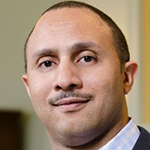
Lionel Robert, Ph.D.
Professor, School of Information
Areas of Expertise: Human-robot interaction; human-AI interaction.
Publications:
A Systemic Review of Human and Robot Personality in Health Care Human-Robot Interaction
Bridging the Health Disparity of African Americans Through Conversational Agents
“As robots become increasingly central to healthcare it seems timely and important to understand how to effectively employ these robots. I am interested in collaborating with healthcare researchers who are deploying robots in their workplaces and want to better understand how to deploy more effectively.”

Liyue Shen, Ph.D.
Assistant Professor, Electrical Engineering & Computer Science
Areas of Expertise: Biomedical AI, encompassing machine learning; computer vision; signal and image processing; medical image analysis; biomedical imaging, and data science.
Attention-Guided Deep Learning for Gestational Age Prediction using Fetal Brain MRI
“The goal for my research is to develop efficient and reliable AI/ML-driven computational methods for biomedical imaging and informatics to tackle real-world biomedicine and healthcare problems, including but not limited to, personalized cancer treatment and precision medicine. I am excited to collaborate and contribute to the e-HAIL community.“

Karandeep Singh, M.D., MMSc
Assistant Professor, Department of Learning Health Sciences
Areas of Expertise: Development, evaluation, and implementation of machine learning models within electronic health record (EHR) systems in support of a learning health system.
Publications:
External Validation of a Widely Implemented Proprietary Sepsis Prediction Model in Hospitalized Patients
“I look forward to being part of the e-HAIL community both to learn and to contribute. I envision being engaged in many aspects of e-HAIL.”

Geoffrey Siwo, Ph.D.
Research Assistant Professor, Internal Medicine
Areas of Expertise: Development and application of AI/ML methods to clinical medicine and global health datasets with an emphasis on low-resource settings.
Publications:
Leveraging crowdsourcing to accelerate global health solutions
Generative AI Design and Exploration of Nucleoside Analogs
Hackathons as a means of accelerating scientific discoveries and knowledge transfer
“I hope to establish new collaborative projects with other members of the U-M research community to in the long-term, collectively address critical barriers in e-Health, and in the short-term, develop grant proposals to support such activities.”

Michael Sjoding, M.D.
Associate Professor, Internal Medicine, Division of Pulmonary and Critical Care
Areas of Expertise: Application of machine learning to critical care; Bias in algorithms and healthcare technologies; use of chest radiographs in machine learning.
Publications:
All models in health care are not colour blind and we should not be either
“I am interested in bringing new data types and computational approaches to address clinical problems in pulmonary and critical care medicine. I am also committed to fostering collaborations between experts in medicine and artificial intelligence/machine learning.“

Karthik Srinasivan, M.S., MHCDS
AMedical Officer, Visiting Researcher, Kellogg Eye Center
“I hope to collaborate on a focused research question that would tap into the wealth of data from the Aravind eye care system, based in India. My main goal is to develop a data registry of Ophthalmology data for prediction and analysis of disease progression, which would be structured for use by internal and external researchers.”

Ryan Stidham, M.D., M.S.
Associate Professor, Internal Medicine, Division of Gastroenterology
Areas of Expertise: Digital health in medicine, including developing new data sources and leveraging unstructured data from clinical imaging; clinical imaging acquisition, manipulation, and analysis (CT, MRI, and ultrasound imaging); medical video research (video signals processing, data standardization and compression, I/O, UI/UX). Commercial applications of digital health and collaborations with medical industry partners.
Motion-based camera localization system in colonoscopy videos
“I am 100% committed to high impact innovation and developing new, not iterative, technologies and methods in health care. I envision serving as another bridge between medicine and engineering (hardware/software) to solve shared problems, as I most enjoy projects where there are opportunities for innovation in both engineering and medicine. Specifically, I can envision aiding in clinical data collection, assessment, and clinical trial design for EE/CS or Mech-E engineering partners to address their needs with consideration of testing needed for clinical use and regulatory filings.”

Mark Van Oyen, Ph.D.
Professor, Industrial & Operations Engineering
Areas of Expertise: Sequential/longitudinal medical decision making through machine learning;; adaptive learning with optimization, and systems modeling and control (diseases include chronic kidney disease, third line drug blood pressure control for diabetics, open angle glaucoma, normal tension glaucoma, ocular hypertension, and age-related macular degeneration). Healthcare operations engineering and management (health system operations include: Emergency Department redesign; “in-advance” appointment scheduling,; system-wide patient flow prediction and admissions control; clinical research unit operations; coordinated care for integrated care systems; and more.)
Publications:
Dynamic Monitoring and Control of Irreversible Chronic Diseases with Application to Glaucoma
Online Resource Allocation with Personalized Learning
Complexity-Augmented Triage: A Tool for Improving Patient Safety and Operational Efficiency

V.G. Vinod Vydiswaran, Ph.D.
Associate Professor, Department of Learning Health Sciences
Areas of Expertise: Natural Language Processing; health text analysis; Artificial Intelligence; information trustworthiness.
Publications:
Multicenter Validation of Natural Language Processing Algorithms for the Detection of Common Data Elements in Operative Notes for Total Hip Arthroplasty: Algorithm Development and Validation
Human versus machine editing of electronic prescription directions
“I envision actively engaging with researchers, postdocs, and students on brainstorming AI and informatics-based solutions to health care challenges, participating regularly in eHAIL meetings, and contributing to research and training mission of e-HAIL.”

Akbar Waljee, M.D., M.Sc.
Professor, Internal Medicine – Gastroenterology
Areas of Expertise: AI and Health; using longitudinal data in low resource settings.
Publications:
Adapted time-varying covariates Cox model for predicting future cirrhosis development performs well in a large hepatitis C cohort
Performance of a Deep Learning Model vs Human Reviewers in Grading Endoscopic Disease Severity of Patients With Ulcerative Colitis
“Meeting new people, developing new methods that are applicable to risk models using AI in low resource settings.”

Josh Welch, Ph.D.
Assistant Professor, Computational Medicine and Bioinformatics
Areas of Expertise: Machine learning; deep generative models; tensors; genomic data analysis.
Publications:
Iterative single-cell multi-omic integration using online learning
Variational Mixtures of ODEs for Inferring Cellular Gene Expression Dynamics
Multi-omic single-cell velocity models epigenome-transcriptome interactions and improves cell fate prediction
“My research aims to develop machine learning approaches for modeling and learning from single-cell genomic data.“

Jenna Wiens, Ph.D.
Associate Professor of Computer Science and Engineering, Associate Director of the AI lab, Computer Science and Engineering
Areas of Expertise: Machine learning for healthcare.
Publications:
Early identification of patients admitted to hospital for covid-19 at risk of clinical deterioration: model development and multisite external validation study
Model Selection for Offline Reinforcement Learning: Practical Considerations for Healthcare Settings
Clinician-in-the-Loop Decision Making: Reinforcement Learning with Near-Optimal Set-Valued Policies
“Our current research portfolio focuses on major public health problems – including infectious disease, Alzheimer’s disease, and diabetes, among others. We develop and apply state-of-the-art AI/ML methods to analyze large longitudinal health datasets. Our work spans several aspects of AI including time-series analysis, reinforcement learning, computer vision, and causal inference. We aim to develop the computational methods needed to help organize, process, and transform data into actionable knowledge with the ultimate goal of improving health.”

Maria Woodward, M.D., M.Sc.
Associate Professor, Ophthalmology and Visual Science
Areas of Expertise: Diagnosis and monitoring of corneal diseases.
Measurement Reliability for Keratitis Morphology
Natural Language Processing to Quantify Microbial Keratitis Measurements
“I actively use ML/AI tools in my research and want to be part of the community.”

Stella Yu, Ph.D.
Professor, Computer Science and Engineering
Areas of Expertise: Computer vision; machine learning.
Publications:
Predicting Demographics from Meibography Using Deep Learning
Meibography Phenotyping and Classification from Unsupervised Discriminative Feature Learning
“I am interested in enabling medical researchers to discover patterns from data with minimal human supervision.”

Ji Zhu, Ph.D.
Susan A. Murphy Professor of Statistics, Literature, Science and the Arts
Areas of Expertise: Statistical Machine Learning.
Publications:
SODEN: A Scalable Continuous-Time Survival Model Through Ordinary Differential Equation Networks
Prediction Models for Network-Linked Data
“I have been working with clinicians for the past 10+ years on applying statistical ML methods to address clinically meaningful problems. These have been fruitful and rewarding experiences, and I look forward to continuing the collaborations as well as exploring new opportunities.”
Executive Sponsors – College of Engineering

Eric Michielssen, Ph.D.
Associate Dean for Research Strategy, College of Engineering
Louise Ganiard Johnson Professor of Electrical Engineering and Computer Science
Professor of Electrical Engineering and Computer Science
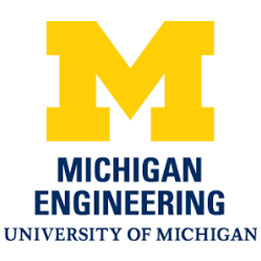

Mike Drake
Executive Director for Research
College of Engineering
Executive Sponsors – Michigan Medicine

Steven Kunkel, Ph.D.
Chief Scientific Officer, Michigan Medicine
Executive Vice Dean for Research, Medical School
Peter A. Ward Distinguished University Professor
Endowed Professor of Pathology Research
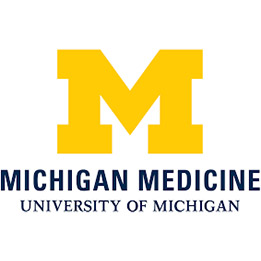

Teri Grieb, Ph.D.
Associate Dean for Research Strategy
Senior Director for Research
Research Assistant Professor of Anesthesiology
Medical School

 MENU
MENU 
